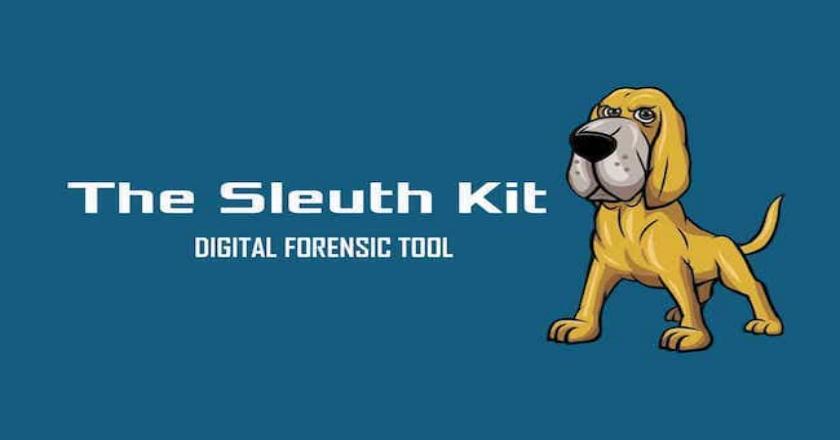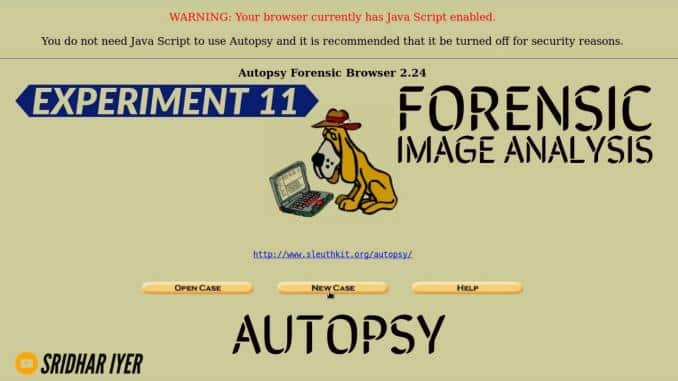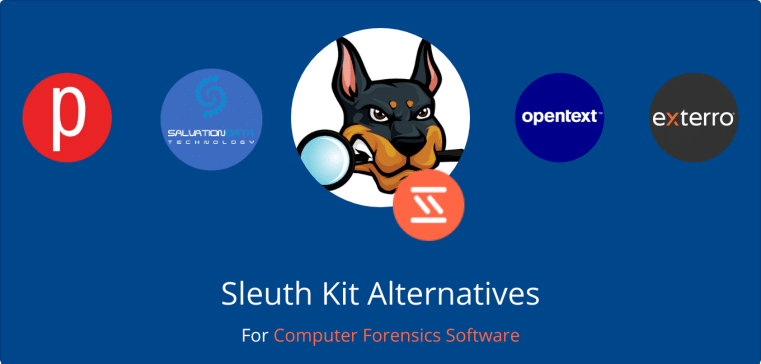Sleuth Kit: Premier Digital Forensics Suite

-
Content
- Overview
- Wonderful Features of Sleuth Kit
- Practical Applications
- Tool Review and Remarks
- Pros & Cons of Sleuth Kit
- The Sleuth Kit Alternatives
- In Summary
-
Content
- Overview
- Wonderful Features of Sleuth Kit
- Practical Applications
- Tool Review and Remarks
- Pros & Cons of Sleuth Kit
- The Sleuth Kit Alternatives
- In Summary
Overview
In an era where data breaches and cybercrimes are escalating, the sleuth kit emerges as a beacon of hope for digital forensics tools. Imagine a tool so robust that it empowers investigators to unravel the mysteries hidden within digital devices, providing a pathway to justice.
Tracing its roots to the open source forensic tools community, the sleuth kit is a collection of command-line forensic utilities that has cemented its place in the digital investigation arena. It serves as a foundational element in the meticulous process of digital forensics, aiding in the dissection of file systems to recover lost, deleted, or compromised data. The versatility of the sleuth kit extends beyond mere data recovery; it is integral to incident response, helping forensic teams swiftly respond to security incidents.
The thesis of the sleuth kit is candid yet profound to offer a complete suite of digital forensics tools that adhere to the principles of forensic science. It guarantees the integrity and admissibility of evidence, proving indispensable for law enforcement, corporate security, and incident response teams. By providing secure data recovery services through a reliable data recovery system, the sleuth kit fortifies the arsenal of those who protect and serve in the digital realm, a testament to the innovative spirit of SalvationDATA‘s mission in computer forensics.
Wonderful Features of Sleuth Kit
The sleuth kit stands out in the realm of open source forensic tools with an impressive array of features designed to streamline the investigative process. Here are some of the key features that distinguish it as a leading solution in the industry:
Multi-User Cases: Collaboration is essential in the complex web of digital forensics. The sleuth kit allows for multi-user access, allowing teams to work on huge cases at the same time. This feature eliminates silos and allows for collaborative analysis, guaranteeing that every piece of data is reviewed by the experienced eyes of a broad collection of examiners.
Timeline Analysis: In digital investigation, creating a timeline of events is a powerful tool. A graphical interface provides an easy-to-understand breakdown of system events in the sleuth kit. It assists examiners in identifying malicious actions or unauthorized access by pinpointing the sequence of activities.
Advanced File System Analysis: File system types can be navigated with ease by Sleuth kit, enabling accurate delving into file systems. Due to its extensive analysis capabilities, both erased files and latent data can be recovered and located using the software.
Robust Search Capabilities: It is easier to search across large databases for certain file types, phrases, or patterns with the Sleuth Kit. Having this powerful search capability is essential for incident response and secure data recovery services, as it saves a great deal of time and money.
Each of these features is accurately designed to empower SalvationDATA’s commitment to advanced digital forensics tools. Together, they create a formidable data recovery system that enhances the capabilities of computer forensics experts in their search of truth and security in the digital domain.
Practical Applications
As a versatile tool, the sleuth kit excels in a multitude of industries, proving its worth by adapting to various scenarios in which digital evidence is essential.
Criminal Investigations: In the hands of law enforcement, the sleuth kit becomes a potent tool in combating cybercrimes. It aids detectives in dissecting data from computer systems to unearth evidence related to offenses such as hacking, cyberbullying, and child exploitation. The ability to recover deleted files or piece together digital activity gives law enforcement a technological edge in criminal proceedings.

Data Recovery Services: The integration of the sleuth kit into SalvationDATA’s workflows demonstrates their commitment to security. As a result of its strong recovery capabilities, the sleuth kit is invaluable in the data recovery industry, preventing permanent loss of important data regardless of system failures or accidental deletions.
Academic Research: Academic institutions utilize the Sleuth Kit for research on digital forensics.Thanks to its open-source character, which promotes academic growth and critique, students and scholars may better understand digital inquiry methodologies.
Legal Sector: Attorneys and legal experts use the sleuth kit to verify claims with digital evidence. In the complex dance of legal battles, the sleuth kit provides the necessary rhythm by ensuring that digital artifacts are forensically sound and admissible in court.
Every use for the sleuth kit highlights its fundamental importance in those domains, confirming its place as a crucial part of modern incident management and computer forensics. This adaptability and agility solidify the sleuth kit’s position as a reliable ally for a variety of industries searching for digital truth.
Tool Review and Remarks
Forensic analysts and security professionals have honed their skills with the Sleuth Kit (TSK). With its robust, modular design, it excels at analyzing volume and file system data on disk images, which helps with data carving and evidence finding. There are many critical applications for this tool, ranging from criminal investigations to digital forensics to file system analysis.
TSK’s command-line interface, while presenting a steep learning curve, is lauded for its precision and efficiency a hallmark appreciated by forensic specialists who require granular control over their investigative tools. The tool’s adaptability is further evidenced by its open-source nature, with more than 50 contributors enhancing its capabilities and over 1000 GitHub stars reflecting its popularity.
Sleuth Kit is more than just a tool; it is a community-based project with its source code available for free, promoting transparency and trust. As a result of this aspect, TSK is encouraged to continue to develop and collaborate, ensuring that it remains at the forefront of digital forensics technology. The company’s reputation in the security sphere is based on its proven track record of reliability and depth in digital investigation work.
Although it has many strengths, there are also potential challenges. Using the command-line interface requires a certain level of technical expertise, which might be intimidating to newcomers. As with many open-source projects, user support primarily relies on community forums and documentation, which can vary in responsiveness and detail.
The Sleuth Kit is a pillar in the digital forensics community, embodying the collaborative effort of a vibrant open-source ecosystem. This tool is well-regarded and essential for professionals engaged in the meticulous work of digital investigation, due to its deep analysis capabilities and strong community backing.
Pros & Cons of Sleuth Kit
Pros
- Analyzes volume and file system data: The Sleuth Kit excels at dissecting and analyzing data structures on disk images, making it a powerful tool for in-depth forensic analysis.
- Open-source flexibility: As an open-source resource, it benefits from community contributions, ensuring continuous improvement and updates.
- Extensive file system support: It can interpret various file systems, which is crucial for examining a diverse range of digital media.
- Modular design: Its modular nature allows users to utilize individual tools or the entire suite, depending on the complexity of the task at hand.
- Integration with Autopsy: For a graphical interface, it integrates seamlessly with Autopsy, providing a more user-friendly experience for those less familiar with command-line operations.
Cons
- Unix-based complexity: Being Unix-based, it can be challenging for users without Unix skills, creating a steeper learning curve.=
- Command-line interface: Users unfamiliar with command-line operations may find it less accessible than tools with a GUI.
- Limited documentation: Some users may find the documentation lacking, which can hinder new users from leveraging the tool’s full potential.
- Resource-intensive: Certain operations can be resource-intensive, requiring significant processing power, which may be a limitation for some users.
- Community support reliance: While open-source is a strength, reliance on community for updates and support can sometimes lead to inconsistent experiences.
The Sleuth Kit Alternatives
- With MIG (Mozilla InvestiGator),organizations can perform quick searches over large networks in real time across multiple systems. A major advantage of MIG over The Sleuth Kit is its ability to perform simultaneous, distributed investigations.
- Volatility specializes in memory forensics, uncovering evidence that would not be found on a hard drive alone by in-depth RAM analysis. There is an advantage to this over The Sleuth Kit, which does not natively analyze volatile memory.
- Data Recovery System (DRS) from SalvationDATA is an all-in-one solution that is multi-tasking capable and can handle up to four tasks at once. When compared with The Sleuth Kit, it offers a more specialized tool for hardware-level recovery due to its diverse scanning modes and dedicated solutions for bad sectors. Contact to apply for a Free Trial now!
- In addition to its speed and ability to manage large amounts of data, FTK (Forensic Toolkit) is known for its flexibility and speed. A database-driven approach is advantageous for managing large-scale investigations, as opposed to The Sleuth Kit’s file-based method.
- X-Ways Forensics is praised for its efficiency and speed, using minimal system resources. As well as offering a highly customizable interface, it can be seen as a more refined approach than The Sleuth Kit, whose interface is more manual and technical.
All of these alternatives have their own unique functionalities, addressing different needs and preferences in the digital forensics community. In comparison with The Sleuth Kit, these tools are often more specialized, offer better user interfaces, and integrate with additional systems, offering forensic professionals a greater variety of tools.
In Summary
The Sleuth kit stands as a powerful suite of digital forensics tools ideal for detailed analysis of volume and file systems. It shines with its open-source nature, allowing for flexibility and community-driven updates. While it presents a steep learning curve due to its Unix basis and command-line interface, it is revered for its extensive capabilities in forensic investigations. Alternatives like MIG, Volatility, DRS, FTK, and X-Ways offer varying benefits, from real-time endpoint investigation to user-friendly interfaces, catering to different aspects of forensic analysis. Each tool, with its distinct advantages, presents options for professionals seeking tailored solutions in the diverse field of digital forensics.




